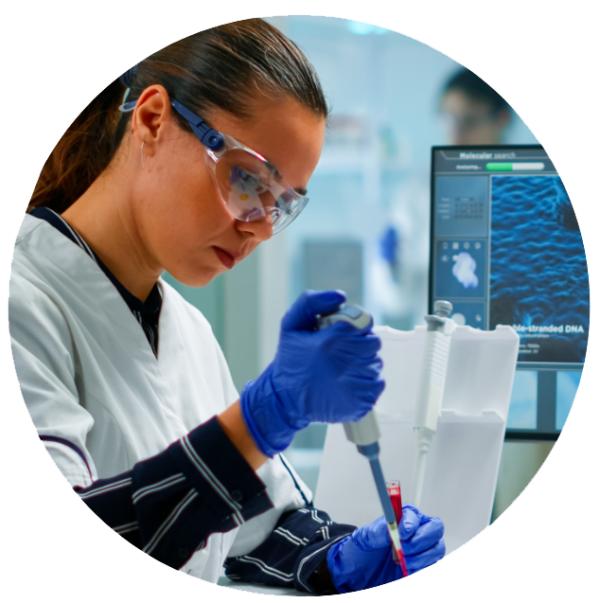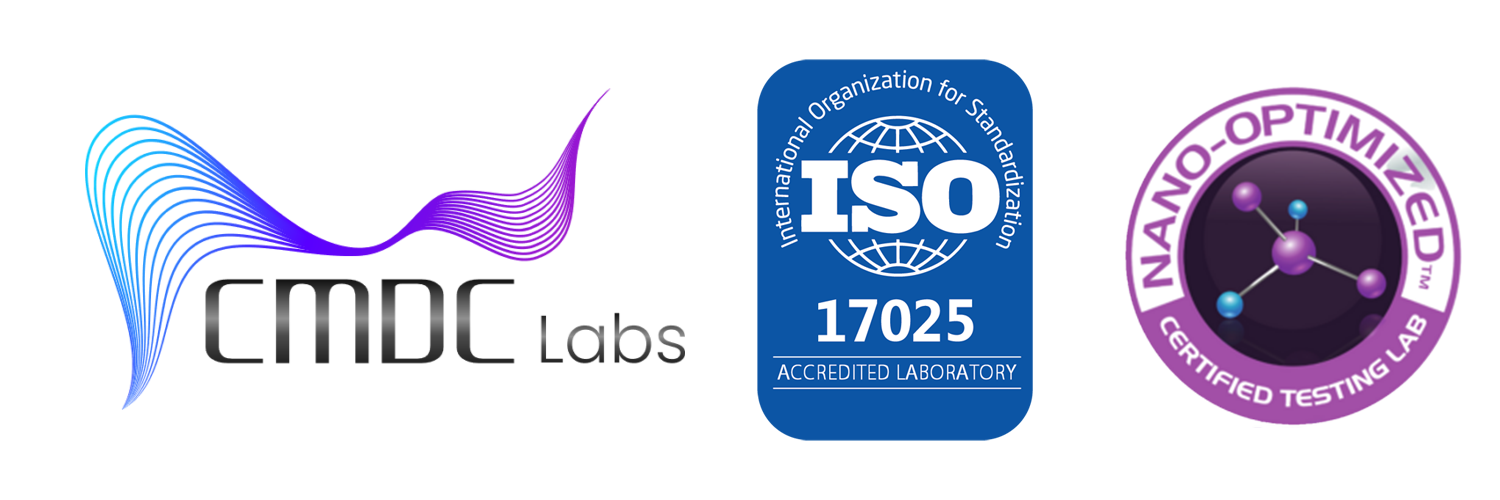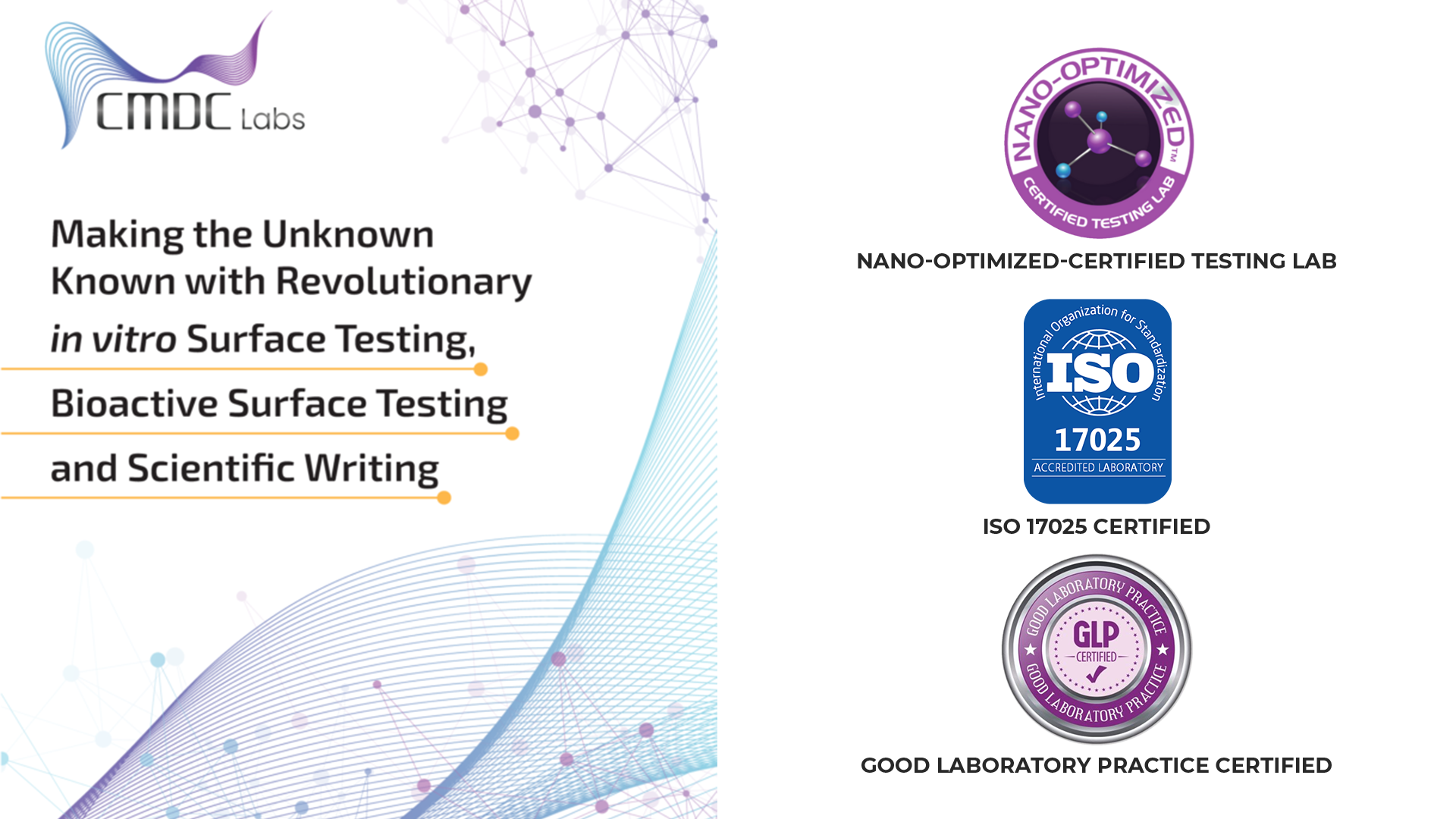Microbiological Analysis
Detecting and identifying microbial threats to ensure product safety and quality
Microbial Assessment
In accordance with the norms of ISO, US FDA, US EPA, Cosmetics Europe, PCPC (Personal Care Products Council), and European Pharmacopoeia, the Microbiology Division provides a comprehensive range of tests and assays.
The microbiology laboratory specifically offers quantification, research, and identification services for particular microbes, as well as challenge tests to determine the effectiveness of preservative systems, tests to determine the antibacterial and antifungal activity of substances, and tests to determine mutagenesis.
Offering microbiological testing, CMDC Labs:
- Microbiological analysis of ingredients and finished products (cosmetics, medical devices, and similar items): total viable bacteria count, yeasts and molds count using ISO (21149 e 16212), European Pharmacopoeia / USP, Cosmetics Europe, PCPC; Research of particular microorganisms using ISO (21150, 22717, 22718, 18416) European Pharmacopoeia /USP, Cosmetics Europe, PCPC methods.
- Specific microorganism identification in accordance with COLIPA, ISO (21150, 22717, 22718, 18416), and European Pharmacopoeia/USP standards.
- Challenge test (Test for preservative system efficacy) in accordance with ISO 11930, ISO 22196, ISO 11737 European Pharmacopoeia, USP 61, 62>, FDA, Cosmetics Europe, and PCPC procedures.
- Validation of specific matrices for microbiological analytical procedures in accordance with ISO 11930, the European Pharmacopoeia, USP, and PCPC.
- Evaluation of the specific antimicrobial activity of substances or products towards bacterial, fungal, or viral strains relevant to dermatology or cosmetics (MIC, MBC, contact inhibition).
- Turbidimetric and contact inhibition for determining the Minimal Inhibitory Concentration (MIC).
- Testing of textiles for antibacterial activity in accordance with ISO 20645, ISO 20743, ISO 22196 AATCC TM100, and AATCC TM147.
- UNI EN 1411 test for determining the impact of microfungi on textile products.
- Analysis of how medicinal tools, supplements, or active components affect how bacteria adhere to mammalian cells.
- Legionella identification and measurement in accordance with UNI EN ISO 11731-2 standard.
- Isolation and identification of product or manufacturing site contaminants to include them in specific challenge testing.
- ISO 29621 risk assessment for microbiological contamination of cosmetic products.
- Assessment of the antimicrobial effectiveness of chemical disinfectants and antiseptics in the veterinary, household, institutional, and medical fields in accordance with UNI EN 14885.
- Chemical disinfectants, antiseptics, and related products’ virucidal action in accordance with UNI EN 14476, UNI ISO 16777, ISO 21702, and ISO 18184 (other viral strains, such as coronavirus, are also available).
- Through in vitro preliminary assays and tests on a chosen panel of human volunteers, the effectiveness of finished products or active substances on the change of the skin microbiome is assessed.
- Creation of testing procedures and personalized validations based on the client’s particular requirements.
- Validation of sanitation methods and cleaning practices for manufacturing facilities in biomedical and cosmetic facilities.


